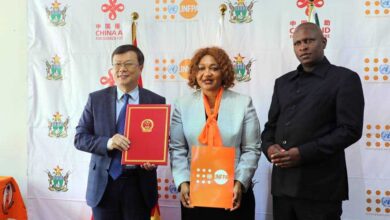
Fidelity Life Assurance of Zimbabwe Limited has received a qualified audit opinion from independent auditors Grant Thornton for its financial statements for the year ended December 31, 2024. The qualified opinion stems primarily from a disagreement regarding the methodology used to translate prior year figures following the company’s shift in functional currency from the Zimbabwe Dollar (ZWL) to the United States Dollar (USD).
A major development during the reporting year was the Board’s decision to officially adopt the USD as the Group’s functional and reporting currency, effective January 1, 2024. This decision, according to Chairman Livingstone Gwata, was informed by the fact that more than 80% of Fidelity Life’s revenue was now generated in USD, thus aligning with the requirements of International Accounting Standard (IAS) 21.
However, this change also became the primary source of contention between the auditors and Fidelity Life management. Grant Thornton stated that the company’s method of translating ZWL-based comparative financial data into USD did not comply with IAS 21. The standard requires prior period financials prepared in a hyperinflationary currency to be translated using the closing exchange rate at the date of change.
Instead, Fidelity Life separated USD and ZWL components from its 2023 financial statements. The USD elements were maintained as if the currency had always been functional, while the ZWL components were translated using internal methods outlined in the financial statements.
“The balances as at 31 December 2024 for retained earnings, property and equipment, investment property, inventories, revaluation reserve, foreign currency translation reserve, insurance reserve and insurance contract liabilities contain material amounts carried forward from 31 December 2023,” the auditors noted. “As a result, the balances may contain misstatements arising from the translation of ZWL balances as at 1 January 2024.”
Grant Thornton concluded that this constituted a departure from the prescribed standards, resulting in a qualified opinion—meaning the financial statements are generally fair but include areas of concern.
The second reason cited for the qualified opinion relates to Fidelity Life’s implementation of a new IT system aimed at complying with IFRS 17 – Insurance Contracts. The auditors noted that the system requires further refinement, particularly in its modelling techniques and data output, which could affect the reported figures on insurance liabilities, revenue, and related expenses.
Despite the audit qualification, Fidelity Life reported a strong financial performance. The Group’s Insurance Contract Revenue rose by 44% to US$11.4 million, driven largely by its flagship “Vaka Yako” product. Net Investment Income increased by 54% to US$9.1 million, aided by fair value gains on investment properties and rising interest income. Overall, profit for the year surged by 178% to US$6.4 million.
The Board has proposed a dividend of US$300,000, translating to 0.002754 cents per share.
Chairman Gwata acknowledged a difficult operating environment, marked by a sharp economic slowdown to 2%, drought conditions, and underperformance in the mining and manufacturing sectors. The depreciation of the ZWL during the first half of the year added inflationary pressures, prompting the government to introduce the Zimbabwe Gold (ZWG) currency in April. However, the ZWG also lost value, leading to a significant devaluation by the Reserve Bank of Zimbabwe in September.
Despite these challenges, the Group’s core businesses recorded solid growth. Fidelity Life Company remained the leading contributor, with Vanguard Life Assurance of Malawi expanding steadily. The funeral services and asset management divisions also showed positive momentum, especially the performance of the Eagle REIT.
The company is now focusing on digital transformation, financial inclusion, and the development of new products, including micro-insurance and offerings for Zimbabweans in the diaspora.
Looking ahead, Gwata expressed optimism, citing the World Bank’s global growth forecast and highlighting Fidelity Life’s intention to leverage its digital infrastructure and product innovation to enhance customer experience and sustain growth—particularly through the continued success of the “Vaka Yako” insurance product.




